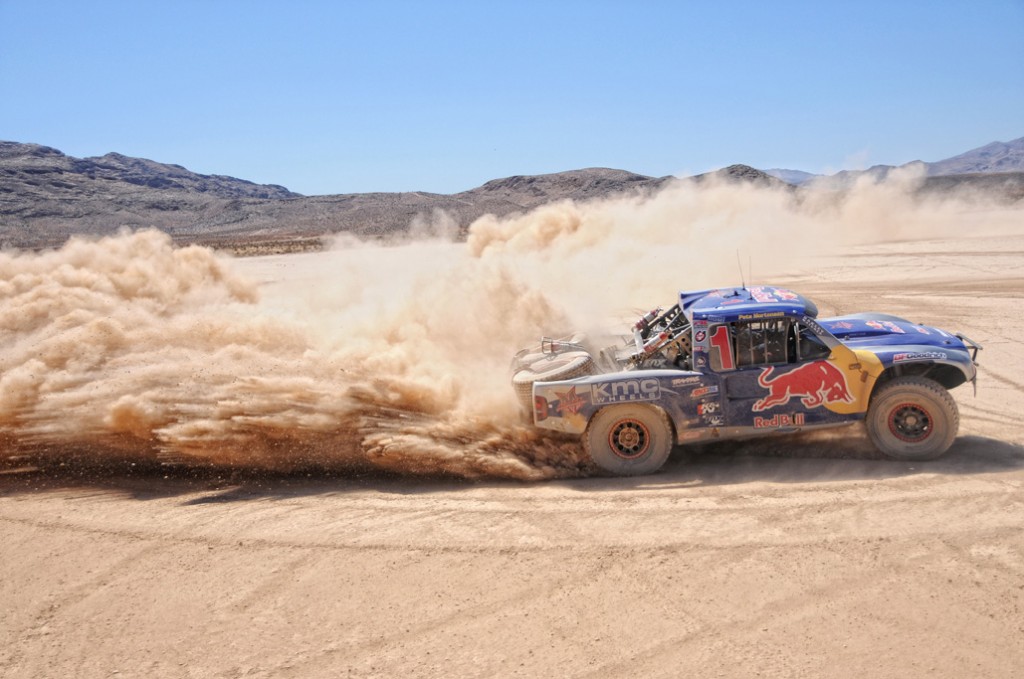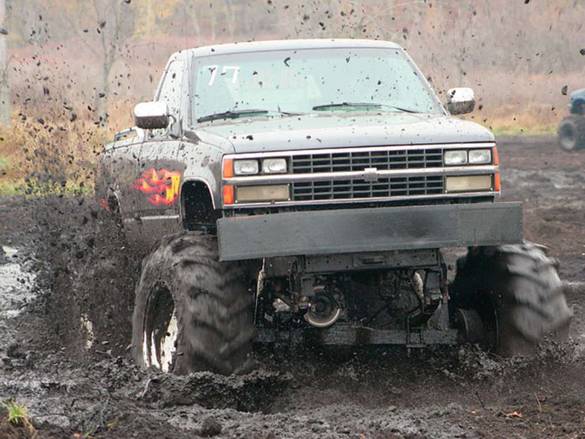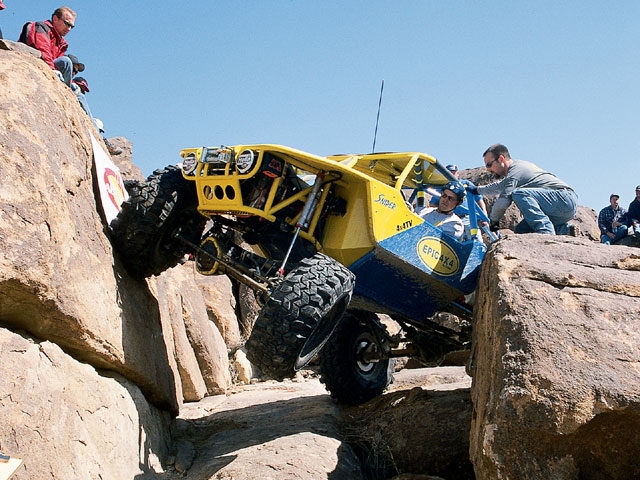The Physics of Off-Roading
By: Nicholas Beeker
Terrain
The type of terrain you are going to be going on is an important part of off roading. Every different terrain has a right way to cross it and many wrong ways. Unlike the urban jungle that is the city and safety of paved road ways where you are unlikely to get stuck the off road scene has a variety of different terrain and surfaces that you need to adjust for and be aware of. The basic few that I would like to cover are the desert, mud, and rocks. Each with their own unique features and technical differences.
Desert
The first one I would like to discuss is the desert, a
large sand filled expanse with large dunes and a hot sun.
The surface is sand which is probably one of the most
difficult surfaces to grasp. Of all of the surfaces sand has
a very low coefficient of friction and is very easy to get
stuck in if you do not have to proper gear. To get through
sand you need lots of power and some wide smooth or paddle
like tires. Using wide tires on the sand allows you to keep
your vehicle above the surface and prevents you from sinking
down in because unlike mud sand is generally deep and offers
hard surface below to grab traction. You are exerting less
force per square inch the wider your tires are. A soft and
low suspension is also key when blasting through the desert
because it is filled with bumps and dips that if you are
going fast when hitting them you could be flipped very
easily. By keeping the center of mass low and the suspension
soft and absorbing the bumps can be deflected by the
suspension and with a lower COM the likelihood of tipping is
much less.

(Taken From: http://www.menziesmotorsports.com/?page_id=82)
Mud
The most popular and least complicated places to go is a
mud pit. With a solid ground below and soft deformable mud
up top its easy and generally cheap to go "mudding". The
coefficient of friction is low but with large big tread tires you can find
some friction in the mess to pull you through with easy. The
body lift is very popular here because it is a very cheap
way to make room for the larger tires you need to get though
the mud. Suspension
is not very important as you are going low speeds through a
pit of mud so just about anything that will give you the
clearance for bigger tires will do the job just fine. The
most important part about mud is having a winch or a friend
with a vehicle and a rope to pull you out when you
inevitably get stuck doing something dumb.

(Taken from:
http://www.topix.com/album/detail/chicago/JDIGG7RINMMPTBB1)
Rocks
Rocks are a very technical off roading terrain because on
top of having to get to proper tires and a good lift you
have to have a winch
and be smart about "picking your lines". Rock crawling as it
is called requires you to have large narrow sticky tires to get plenty
of traction on the slippery smooth rocks. A tall and
flexible suspension
system is also needed as unlike the other surfaces, rocks
are tall and very uneven so having a suspension system that
can keep your tires on the ground even at odd angles is very
important to prevent roll overs and loss of traction. The
winch in this case is used in many cases to keep the vehicle
the right side up and pulling the front or rear of the
vehicle in the direction you want to travel. Finally and
most importantly picking your lines is very important
because you want to select a path that will allow you to
keep your tires on the ground and not become too much of a
problem.

(Taken from:
http://vitalministries.org/my_devotions/the-hard-road/#.UpaqkOLMqrt)